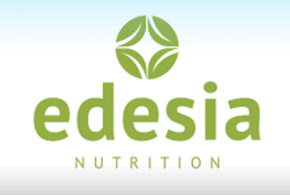Operating efficiently and cost-effectively is critical for nonprofit organizations trying to make the biggest possible impact. Increasingly, information technology is at the center of the equation.
At Providence, R.I.-based Edesia Nutrition, which develops and distributes food products that are sent all over the world, the path to progress was paved with major changes to enterprise software and systems. In the past, “We had data that wasn’t visible, and it was affecting our ability to reach children and keep costs down,” recalls senior IT manager Brian Dugas.
Juggling three different enterprise software applications spread across financials and operations—with data also residing on spreadsheets—translated into manual data entry and inventory calculations. “We had people doing work that computers should have been doing,” Dugas says, “but it was no longer feasible.”
As a result, about two years ago, the organization began searching for a consolidated approach to managing its business data. Edesia applied for a charitable grant from SAP and was selected to receive the company’s Business One business management software. The system went live about a year ago.
“The transition process was somewhat complex because we had to spend a lot of time with different departments to understand their needs and requirements,” Dugas reports. “We looked at almost every business process, examined how we were doing it and how it would work in a perfect world.”
The task also required migrating data to the new system manually and matching existing data fields or creating new ones that would fit the organization’s needs moving forward.
For instance, a key consideration was ensuring that the organization’s food packets meet the highest quality standards. “The nutrients have to be accurate from sachet to sachet, so one of the most important parts of the solution was the quality module,” Dugas explains.
Gaining Access to Real-Time Data
After integrating a Food One Template from Softengine, Edesia had access to real-time data, along with complete visibility into the scope of production processes. This allowed the organization to restructure workflows and introduce previously absent product and packaging automation.
Today, when a sales person submits an order, the procurement manager sees it immediately and can adjust ordering for food items such as sugar or peanuts accordingly. The data flows electronically and in real time.
All of this has helped Edesia Nutrition reduce staff time and associated costs, while ensuring that the organization adheres to precise formulas with strict nutritional requirements.
“We have 100 percent confidence in the quality of the product as it comes off the line,” Dugas says. Today, “The entire organization is able to focus on the more strategic aspects of the business, which includes ideas for new products and better ways to reach out to hungry children.”
The system is also paying off in other ways. Edesia Nutrition is currently building a new factory that will further automate food production.
Using the software, the organization will be able to enter a recipe and have the process control system carry out order execution and manufacturing all the way to the equipment—without human intervention. The system also makes it easier to track recalled items and run analytics.
The most important benefit, however, is that “This platform makes a real difference for the malnourished children of the world,” says Dugas.









